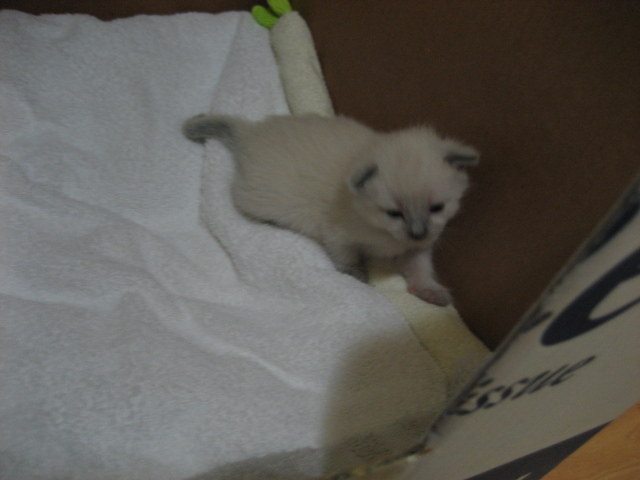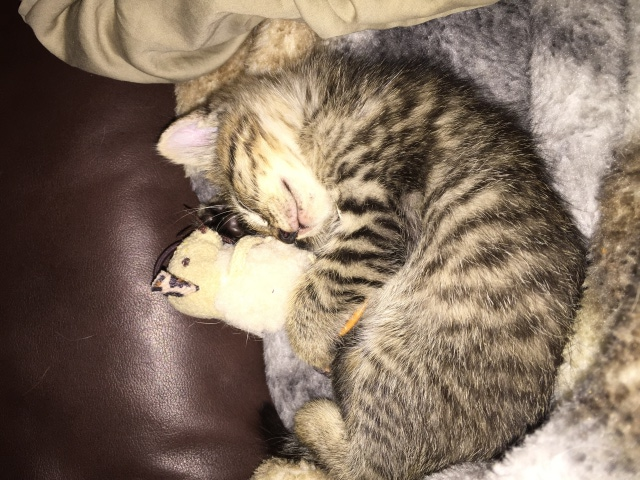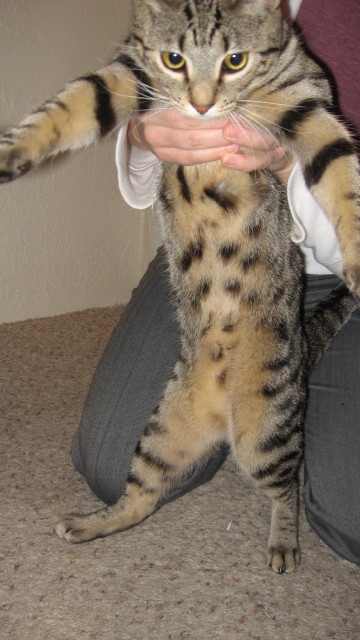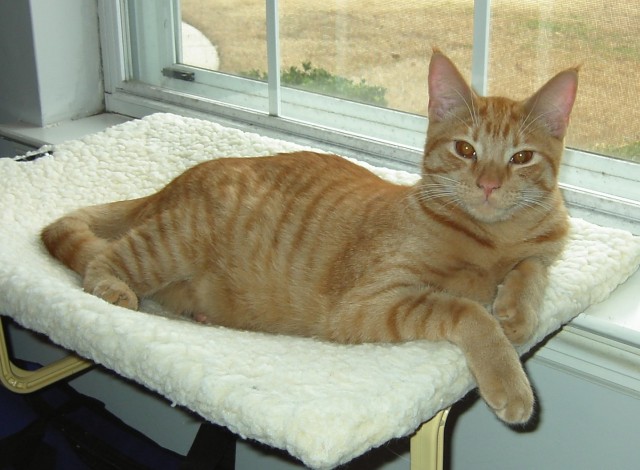QuestionMy husband and I have a 1 year old male cream point Birman cat. In the first few months that we had him he peed in our bed on 3 separate occasions. After that we made sure to keep the bedroom door shut, which isn't always easy as my husband's quiet forgetful but we somehow seemed to have managed. I still don't trust my cat on the matter as on the 2nd and 3rd time that he had peed he was already neutered, did not have any infection problems, nor was his litter dirty. I feel that his reasons were emotional but as he cannot explain himself to me I have no idea what they are. Generally he is a very relaxed cat and I give him plenty of attention as I work from home. Sometimes I can be overly loving with him, which I suspect shouldn't be a problem but who know? I cuddle and kiss him continuously as he is so adorable and most of the time he seems to enjoy it. Although he's generally got a relaxed temperament he is quite a vocal cat and somedays (maybe once a week or sometimes less) he can be a bit noisy, meowing insistently for almost no reason but I was told by his breeder that it runs in his family. Apparently his grandmother's just as vocal. I'm just telling you this so that you can have some idea of his character. Anyway, I thought I had put an end to his peeing problem by keeping the bedroom door closed and then 3 days ago I caught him when he was just about to pee on our sofa! I immediately took him to his litter tray. He hadn't started to pee so I did suspect that I might have misread his body language. Yet today when I sat myself down on the sofa I realized that he had peed on it in the morning. I cannot seem to understand his behavior as he's been allowed in our living room on his own since we had him and has never thought of doing this so why now? And what triggers such a behavior? Please help!
AnswerHi Deniz,
The most common reason for inappropriate urination is pain. This can be caused by infection, urinary tract crystals/stones or an inflammatory condition called interstitial cystitis. It is always best to rule out these conditions with a urinalysis whenever a cat urinates outside the litter box.
Some cats urinate outside the box because they don't like the type of litter you're using, the size or type of the box, or the location. Cats generally like an unscented litter with a fine, soft texture in an uncovered litter box. You may want to search the internet to see if you can order some Cat Attract litter additive. This is an herbal attractant that will make the litter seem like the most appropriate place to eliminate. It should only be used with unscented clumping litter.
The litter box should be placed in a convenient but low-traffic area of the home. Cats are likely to not use the litter box 100% of the time if it's placed in an inconvenient area such as a basement or noisy place like a laundry room. Studies also suggest that most cats are much too large to use the average sized litter box comfortably. Consider buying an extra large litter box, or better yet, using an under bed storage container or cement mixing tub as a litter box. These give cats the room they need to move around with ease.
If none of these things help, it's possible your cat is just anxiety-prone. Most of the time, there is a stressor in the environment that's causing a cat to urinate inappropriately. Changes in the home, such as visitors, new furniture, a new work schedule, construction outside, or neighborhood cats that your kitty can see through the windows (or interact with if he goes outdoors) may all be reasons why he would misbehave. Often, the cause is so subtle that we as pet owners fail to detect it, but a trained animal behaviorist may pick up on it.
Usually the best place to start is to eliminate the cause of stress if you can identify it. Don't allow friends to bring their pets into your home, for instance, if this has been a practice. Try to keep noisy gatherings to a minimum, and shut him in one room when you do have company over. And try to keep a regular schedule for his feeding, grooming and treat time to give him some sense of stability. I also would recommend using some pheromone therapy. These are hormones that help calm cats during times of stress, and there is a product called Feliway, which is a synthetic pheromone. I use the plug-in diffusers in my own home. See www.feliway.com to learn more.
If the Feliway doesn't seem to help, your kitty might have more serious anxiety which requires a prescription to treat. I've had a couple of cats who required antidepressants to treat anxiety-related behavioral issues, and none of them required treatment for longer than 6 months. Fluoxetine tends to be the most successful for treating litter box issues, and it also has the fewest side effects (virtually none noted). And cats who are treated with fluoxetine are the least likely to suffer a relapse of the behavior when the medication is discontinued. There are several choices if fluoxetine is not right for your cat, however.
Best of luck!
Jessica

 cat vitamins; valerian feline;; NuVet health pets; wholistic Feline;
QuestionHi, I have a mostly indoor cat - sh
cat vitamins; valerian feline;; NuVet health pets; wholistic Feline;
QuestionHi, I have a mostly indoor cat - sh
 is my kitten blue or blue cream point?
Question
polar bear
hi Jessica, our mommy cat is a blac
is my kitten blue or blue cream point?
Question
polar bear
hi Jessica, our mommy cat is a blac
 Found 4-5 week old kitten
Question
Chloe
Hi. We found a 4-5 week old kitte
Found 4-5 week old kitten
Question
Chloe
Hi. We found a 4-5 week old kitte
 What breed is my cat?
QuestionBoots
QUESTION: Hi Norman, i was hoping
What breed is my cat?
QuestionBoots
QUESTION: Hi Norman, i was hoping
 Lost Cat questions
QuestionRusty
QUESTION: Ali,
My new
Lost Cat questions
QuestionRusty
QUESTION: Ali,
My new